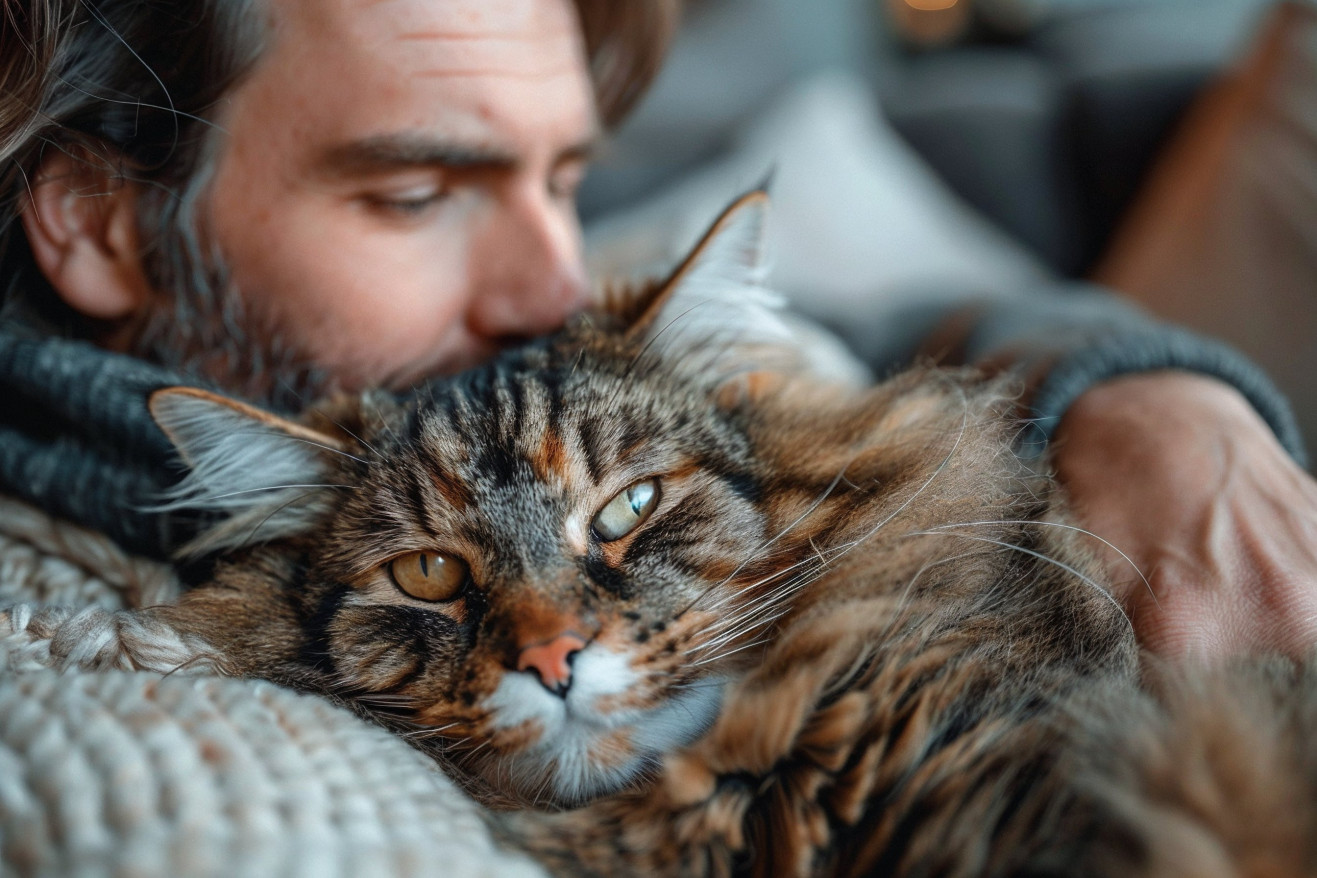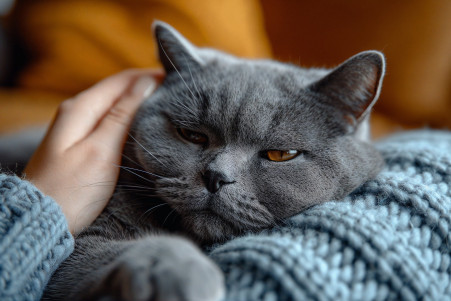Why Are My Cat's Ears Cold? Exploring the Causes
17 April 2024 • Updated 16 April 2024

If you've ever felt your cat's ears and noticed that they're cold, you might be wondering why this is happening. There are a few reasons why your cat's ears might be cold, including the way a cat's ears are designed and how blood flows to them. Cats have less fat in their ears and the cartilage is thin, which makes it easy for heat to escape and helps cats regulate their body temperature.
In this article, we'll take a look at the most recent scientific research to explain why your cat's ears might be cold, debunk some myths, and discuss the many factors that can impact a cat's ear temperature. From how cats regulate their body temperature and the temperature of their environment, to some potential health issues, this article will help you understand more about your cat's ears and how they're feeling.
Why are my cat's ears cold?
Cat Ear Anatomy and Thermoregulation: Why Do Cats Have Cold Ears?
Cats are experts at thermoregulation, or the ability to control their body temperature. According to Cornell University, cats have less fat in their ears, tail, and paws, which makes it easier for heat to escape from these areas. This helps cats maintain a comfortable body temperature.
One way that cats achieve this is by restricting blood flow to the ears, paws, and tail, according to this article. The ears' thin cartilage makes it easier for heat to escape, and the fact that cats can rotate their ears up to 180 degrees means that they can release more heat from their bodies. By regulating blood flow, cats can ensure that their ears are cooler than other parts of their bodies.
While this is normal, healthy behavior, the Merck Veterinary Manual notes that ears that are very cold and don't warm up could be a sign of a problem with thermoregulation. It's important to understand your cat's anatomy and how they regulate their body temperature so that you can tell if cold ears are a cause for concern or just a sign that your cat is regulating their body temperature.
Environmental Factors: When Cold Ears Are a Problem
If a cat is exposed to cold temperatures for a long time, it can lead to their ears feeling cold to the touch. According to Rover, this can result in hypothermia or frostbite, which both require medical attention. Signs of hypothermia include low energy, shivering, pale gums, and slow breathing or heart rate. Frostbite can cause the ears to turn red, swell, or change color, and it can also cause pain and potential tissue damage, per the Merck Veterinary Manual.
It’s important to keep an eye on a cat’s behavior and general body temperature when they’re in cold conditions or near drafts. Cats.com notes that if a cat is showing signs of extreme cold like being unable to stand or unresponsive, they should be taken to the vet immediately. Watching your cat closely and making sure they’re in a warm, safe space can help prevent the negative effects of prolonged exposure to cold.
Cold Ears and Other Health Problems: When to Go to the Vet
While cold ears alone may not be a cause for concern, they can sometimes indicate an underlying health condition, according to Cats' Ears Are Cold: Causes And Healthy Implications. Cold ears in combination with other symptoms like lethargy, vomiting, labored breathing, and other worrisome signs may be a sign of illness, according to VCA Animal Hospital.
Health issues like ear infections, hypothyroidism, poor circulation, and dehydration can cause a cat's ears to be cold, according to Signs That Your Cat May Have an Ear Infection. Meanwhile, WagWalking notes that older cats, kittens, and cats with weaker immune systems may be more at risk of developing health problems that can lead to cold ears.
If a cat's ears are still very cold or other symptoms are still present, it's important to see a vet to get a proper diagnosis and treatment, according to Cats.com. Getting medical help as soon as possible can help prevent more severe issues and ensure that a cat is healthy and well.
How to Keep Cats Warm and Comfortable: Home Remedies and Other Tips
Ensuring that cats have a warm, insulated space is important for keeping them comfortable and protected in cold weather. According to The Humane Society, this can be achieved by providing well-insulated bedding and moving cats to warmer parts of the house. For outdoor cats, the Humane Society suggests that shelters with straw or Mylar lining can help cats retain their body heat and stay warm while also keeping out the wind and rain.
Increasing food intake, especially with wet food that is easier to digest, can help cats maintain their body heat, according to Alley Cat Allies. Heated bowls for food and water can also help ensure that food and water don't freeze and that cats are able to eat and drink as needed. However, PetCareRx warns against using electric blankets or heating pads, as cats may not be able to move away from them if they become too hot, leading to burns.
In cases of extreme cold, Blue Cross suggests that cats be kept indoors as much as possible and that outdoor time be limited to prevent hypothermia or frostbite. By ensuring that cats have a warm, safe space and monitoring their health and comfort, cat owners can help make sure that their pets are safe and comfortable during the winter.
Preventative Care and Monitoring: How to Help Your Cat Stay Safe and Healthy
Regular vet visits and preventative care can help catch any potential health problems early, says Recognizing the Signs of Illness in Cats. Grooming and ear cleaning, as mentioned in How to clean cat ears, can help get rid of any wax or debris that could lead to ear infections or other issues. In general, monitoring a cat's behavior, appetite, and energy levels can help pet parents stay on top of any potential health issues.
Making sure cats stay inside during extreme weather can help avoid cold temperatures and other dangers, notes Medivet. In general, making sure cats are in a safe environment and addressing any issues as they arise can help ensure a cat's overall well-being. By taking these steps and keeping a close eye on their cat, pet parents can help make sure their pets stay healthy and happy.
Conclusion: What to Know and How to Help Your Cat's Cold Ears
A cat's ears can be colder than the rest of their body due to their unique ear anatomy and thermoregulation. While this is normal, especially if the cat is otherwise healthy and acting normally, very cold ears or cold ears in combination with other symptoms can be a sign of a problem.
In addition to cold weather, conditions such as infections and poor circulation can lead to dangerously cold ears. It's important to keep cats warm and comfortable and to monitor their overall health and behavior to catch any potential issues. If you're worried about your cat's ear temperature or anything else, don't hesitate to contact your vet.


